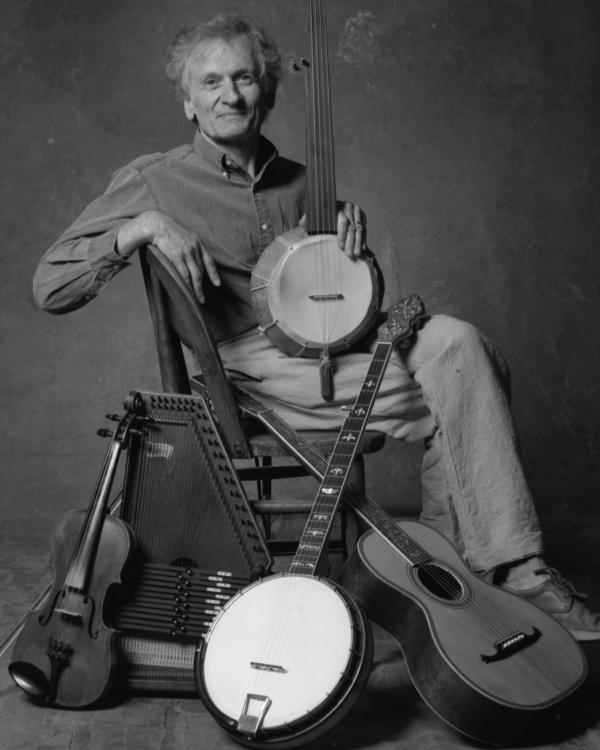Mike Seeger

Photo by McGuire
Bio
Mike Seeger, the 2009 recipient of the Bess Lomax Hawes NEA National Heritage Fellowship, stands out in a family of prominent scholars and musical performers as an advocate, a documenter, a teacher, and an artist. His parents, Charles and Ruth Crawford Seeger, moved to Washington, DC, in 1935, when his father got a job with the New Deal programs of the Works Progress Administration. Seeger was exposed to the rich cultural and political activism in Washington at the time, including the documentation of traditional music resulting from the work of John and Alan Lomax based at the Library of Congress. It was not uncommon for this musical family to have their own musical sessions at home. Seeger and sister Peggy even discovered that the woman who cooked and cleaned for the family, Libba Cotten, played guitar. With their encouragement, Cotten, the source of such numbers as "Freight Train" and "Shake Sugaree," eventually enjoyed a second career both as their mentor and as a public performer. During the early 1950s, Seeger began seriously recording traditional musicians, focusing first on old-time solo and duet music, along with the string band music of southwest Virginia. He also began to perform with greater frequency, eventually co-founding the seminal group the New Lost City Ramblers. Concurrent with the growing popularity of commercial folk music, the Ramblers performed music rooted in the regionally distinct repertoire of Appalachia and the upper South. While recognized widely for his mastery of the guitar, banjo, mandolin, fiddle, and autoharp, Seeger continued to seek out and record musicians who were not known except in their own communities. Thanks to his work, artists such as Dock Boggs, Maybelle Carter, Kilby Snow, Sam and Kirk McGee, and Hazel Dickens reached a broad public audience. Seeger has produced more than 30 documentary recordings and has performed on another 40 recordings. He has recorded several video instruction guides for instrumentalists and has produced a documentary book and video on Southern traditional dance titled Talking Feet. Mike Seeger continues to perform and tour, but what has marked his career more than his performance has been his willingness to redirect the spotlight on those caretakers of culture who both inspired and mentored him. Joe Wilson, himself a recipient of the Bess Lomax Hawes NEA National Heritage Fellowship, says, "It was Mike who said to a generation of musicians, 'dig a little deeper.' His contributions as an advocate of great artists who had been ignored will shine for generations to come; he is our teacher in inclusiveness, the one always willing to put others before himself, to say 'You need to hear this.'"
| Photo & audio tribute > |

